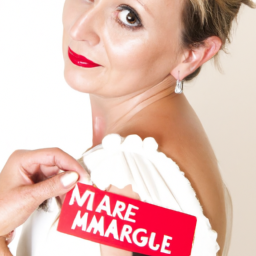Marriage is a sacred bond that couples enter into with hopes of a lifetime of love, happiness, and companionship. However, as time passes and challenges arise, maintaining a healthy and thriving relationship can become increasingly difficult. Many individuals find themselves wondering, “Can I save my marriage by myself?” This question weighs heavily on the hearts and minds of those who are facing marital struggles, desperately seeking solutions to mend the cracks in their relationship. In this blog post, we will explore the possibility of salvaging a marriage without the involvement of a partner, delving into the complexities, potential strategies, and personal growth required in such a journey. Whether you are currently navigating a rocky marital terrain or simply curious about the dynamics of solo marital rescue, this article aims to provide insights and guidance for those who are determined to rekindle the flames of love and restore harmony within their marriage.
Understanding the Importance of Self-Reflection in Saving a Marriage
Marriage is a beautiful union between two individuals who have chosen to share their lives together. However, it is not uncommon for couples to face challenges and difficulties along the way. When these problems arise, it is essential to take a step back and engage in self-reflection to save the marriage. Self-reflection allows you to gain a deeper understanding of yourself, your partner, and the dynamics within your relationship. In this article, we will explore the importance of self-reflection and provide you with a step-by-step guide on how to save your marriage by yourself.
Understanding Your Emotions
The first step in self-reflection is to understand your emotions. It is crucial to recognize and acknowledge your feelings before attempting to address any issues in your marriage. Take the time to identify the emotions you are experiencing, whether it is anger, sadness, frustration, or disappointment. By understanding your emotions, you can better communicate your needs and concerns to your partner.
Once you have identified your emotions, reflect on the underlying reasons behind them. Are there any past experiences or unresolved conflicts that contribute to these emotions? Understanding the root causes of your emotions will enable you to approach your marriage with empathy and compassion.
Furthermore, self-reflection allows you to become aware of any destructive patterns or behaviors that you may be engaging in. Are you constantly criticizing your partner or avoiding difficult conversations? Recognizing these patterns will help you break free from them and create a healthier dynamic within your marriage.
Improving Communication
Effective communication is the cornerstone of a successful marriage. By engaging in self-reflection, you can identify areas in which your communication may be lacking and work towards improving it. Reflect on your listening skills – are you truly listening to your partner or simply waiting for your turn to speak? Active listening involves giving your full attention, showing empathy, and validating your partner’s feelings.
Additionally, self-reflection allows you to assess your communication style. Are you using aggressive or passive-aggressive language? Are you expressing your needs and concerns clearly and assertively? Understanding your communication style will help you make necessary adjustments to ensure that your message is being conveyed effectively.
Furthermore, self-reflection can help you identify any barriers to communication within your marriage. Are there any unresolved conflicts or recurring topics that always lead to arguments? Reflect on these barriers and consider seeking professional help, such as couples therapy, to address and overcome them.
Investing in Personal Growth
Self-reflection also involves investing in personal growth. By focusing on your own development, you can become a better partner and contribute positively to your marriage. Take the time to identify areas in which you can grow and improve as an individual.
Consider engaging in activities that bring you joy and fulfillment outside of your marriage. Pursue hobbies, interests, or personal goals that make you feel alive and happy. By nurturing your own well-being, you will bring a renewed sense of energy and positivity into your relationship.
Furthermore, self-reflection allows you to assess your own strengths and weaknesses. Reflect on how you can leverage your strengths to support your partner and your marriage. Additionally, identify areas in which you can work on yourself, whether it is improving your patience, empathy, or emotional intelligence.
Remember, saving a marriage by yourself does not mean you have to do it alone. Seek support from trusted friends, family members, or professionals who can provide guidance and advice throughout your journey of self-reflection and personal growth.
In conclusion, self-reflection is a powerful tool in saving a marriage. By understanding your emotions, improving communication, and investing in personal growth, you can create positive change within yourself and your relationship. Remember, it takes time, effort, and commitment to save a marriage, but with self-reflection as your guide, you can pave the way for a stronger and more fulfilling partnership.

Effective Communication Strategies to Save Your Marriage Alone
In any relationship, communication plays a pivotal role in building a strong foundation. When it comes to saving your marriage alone, effective communication becomes even more essential. By understanding and implementing the right strategies, you can improve the communication within your marriage and work towards saving it. Here are some valuable communication strategies that can help you in your journey:
1. Active Listening
Active listening is a fundamental aspect of effective communication. It involves fully focusing on your partner’s words, understanding their perspective, and responding appropriately. To practice active listening, give your partner your undivided attention, maintain eye contact, and avoid interrupting or formulating responses while they are speaking. Show empathy and validate their feelings to create a safe space for open and honest communication.
Additionally, paraphrasing what your partner has said can help ensure you have understood their message correctly. Repeat their words back to them and ask clarifying questions if needed. This demonstrates your commitment to understanding their thoughts and feelings, fostering a deeper connection.
Remember, active listening requires patience and genuine interest in your partner’s thoughts and emotions. By actively listening, you can strengthen your bond and create a more harmonious environment for saving your marriage.
2. Expressing Yourself Clearly
While listening is crucial, expressing yourself clearly is equally important in effective communication. Clearly conveying your thoughts, emotions, and concerns allows your partner to understand your perspective and work towards resolving issues together.
When expressing yourself, use “I” statements instead of “you” statements to avoid sounding accusatory. For example, say “I feel hurt when…” instead of “You always make me feel hurt when…”. This approach takes ownership of your emotions and encourages your partner to empathize rather than become defensive.
Furthermore, be specific and avoid generalizations. Clearly communicate the actions or behaviors that have been causing distress and explain how they impact you. By being specific, you provide your partner with actionable information to address the issues effectively.
Lastly, remain calm and composed while expressing yourself. Avoid raising your voice or resorting to personal attacks. Maintain a respectful tone and focus on finding solutions rather than dwelling on past mistakes.
3. Non-Verbal Communication
Non-verbal communication, including body language and facial expressions, plays a significant role in conveying your emotions and intentions. Pay attention to your non-verbal cues as they can either support or contradict your verbal communication.
Show your partner that you are engaged and interested through open body language. Maintain eye contact, uncross your arms, and lean towards them to demonstrate your attentiveness. Nodding occasionally and smiling when appropriate can also convey understanding and support.
It’s crucial to be aware of your facial expressions as well. A warm and welcoming smile can help create a positive atmosphere, while a frown or a scowl can escalate tension. Practice controlling your non-verbal cues to ensure they align with your desired message.
Remember, non-verbal communication can often speak louder than words. By paying attention to your body language and facial expressions, you can enhance the effectiveness of your overall communication and foster a deeper connection with your partner.
Implementing these communication strategies can help you take significant steps towards saving your marriage alone. Remember, effective communication requires practice, patience, and a willingness to understand and be understood. By actively listening, expressing yourself clearly, and being mindful of non-verbal cues, you can create a healthier and more fulfilling relationship with your partner.

Seeking Professional Help: Can Individual Efforts Save a Failing Marriage?
Marriage is a complex and dynamic relationship that requires constant effort and dedication from both partners. However, there may be times when one spouse feels the need to take the initiative and try to save the marriage on their own. While individual efforts can certainly make a difference, seeking professional help can greatly enhance the chances of success. In this article, we will explore the importance of seeking professional help and provide you with a step-by-step guide on how to save your marriage by yourself.
Understanding the Role of Professional Help
When faced with marital issues, many individuals wonder if they can save their marriage without involving a third party. While it is possible to make progress on your own, seeking professional help can provide valuable guidance and support. Marriage therapists, counselors, or relationship coaches have the expertise and experience to help you navigate through the challenges and complexities of a failing marriage.
Professional help offers an objective perspective, allowing you to gain insights into your relationship dynamics, communication patterns, and underlying issues. They can help you identify destructive behaviors, develop healthier coping mechanisms, and provide tools to improve your emotional connection. Additionally, a professional can facilitate open and honest communication, creating a safe space for both partners to express their feelings and concerns.
By involving a professional, you can tap into their knowledge and skills to address deep-rooted problems that may be difficult to tackle alone. They can guide you through the process of self-reflection, personal growth, and building a stronger foundation for your marriage. Remember, seeking professional help is not a sign of weakness but a proactive step towards saving your marriage.
Step-by-Step Guide to Saving Your Marriage by Yourself
1. Acknowledge and Accept the Issues: The first step in saving your marriage is to acknowledge the problems and accept that they exist. Be honest with yourself about the challenges you are facing, and recognize your own contributions to the issues. This self-awareness is crucial for personal growth and positive change.
2. Communicate Openly and Honestly: Effective communication is the cornerstone of a healthy marriage. Take the initiative to have open and honest conversations with your spouse about your concerns, needs, and desires. Listen actively and empathetically to their perspective and validate their feelings. Avoid blame and criticism, and instead focus on finding solutions together.
3. Seek Professional Help: As mentioned earlier, involving a professional can greatly enhance your efforts. Research and find a qualified marriage therapist, counselor, or relationship coach who can guide you through the process. Attend therapy sessions individually and, if possible, invite your spouse to join as well. A professional can provide you with tools, techniques, and strategies to rebuild trust, improve communication, and resolve conflicts.
4. Take Responsibility for Your Actions: To save your marriage, it is essential to take responsibility for your own actions and behaviors. Reflect on how your actions may have contributed to the problems in your relationship and commit to making positive changes. This self-improvement can inspire your spouse to do the same and create a positive cycle of growth.
5. Focus on Self-Care: Saving a failing marriage can be emotionally draining, so it is vital to prioritize self-care. Take care of your physical, mental, and emotional well-being. Engage in activities that bring you joy and reduce stress. By taking care of yourself, you will have the energy and resilience to work on your marriage.
6. Practice Patience and Persistence: Rebuilding a marriage takes time and effort. Be patient and persistent in your efforts, even when progress seems slow. Rome wasn’t built in a day, and healing a marriage requires consistent dedication and commitment. Celebrate small victories along the way and remain hopeful for the future.
In conclusion, while individual efforts can make a difference, seeking professional help can significantly increase the chances of saving a failing marriage. By acknowledging the issues, communicating openly, and involving a professional, you can embark on a journey of self-discovery and relationship growth. Remember, saving a marriage requires commitment, patience, and a genuine desire for change. With the right mindset and the support of a professional, you can increase the likelihood of rebuilding a strong and fulfilling marital bond.
Crisp Recap
Marriage is a sacred bond that requires effort and commitment from both partners to thrive. However, there may come a time when one spouse wonders if they can save their marriage single-handedly. While it is undoubtedly challenging, it is not entirely impossible. By adopting a proactive approach, self-reflection, and seeking professional help, individuals can make significant strides in saving their marriage.
Firstly, taking a proactive approach is crucial when trying to save a marriage alone. This involves acknowledging the issues within the relationship and taking responsibility for one’s own actions. By identifying and addressing personal shortcomings, individuals can begin to make positive changes that can positively impact the marriage. Additionally, open and honest communication with the partner is essential. Expressing concerns, desires, and intentions can help create an atmosphere of understanding and potentially prompt the partner to reflect on their own behaviors.
Self-reflection is another vital aspect of saving a marriage independently. It is essential to evaluate one’s own actions, attitudes, and behaviors that may have contributed to the current state of the relationship. By taking the time to understand oneself better, individuals can work towards personal growth and change detrimental patterns. Moreover, self-reflection allows for introspection and empathy, which can help foster compassion and understanding towards the partner’s perspective.
Lastly, seeking professional help can significantly increase the chances of saving a marriage by oneself. Marriage counselors or therapists can provide guidance, support, and practical tools to navigate through the challenges. They can help individuals develop effective communication skills, resolve conflicts, and rebuild trust. Professional assistance can also offer an unbiased perspective and facilitate productive conversations between spouses.
While saving a marriage alone is an uphill battle, it is not an impossible feat. By taking a proactive approach, engaging in self-reflection, and seeking professional help, individuals can make genuine efforts to salvage their relationship. Ultimately, the success of saving a marriage relies on the commitment, dedication, and willingness of both partners to work towards a healthier and happier future together.
Check Out These FAQs:
Q1: Can I save my marriage by myself?
A1: While it’s not easy, it is possible to save your marriage by yourself. It takes dedication, self-reflection, and a willingness to work on your relationship even when your partner may not be fully engaged. By taking responsibility for your own actions, making positive changes, and seeking professional help if needed, you can increase the chances of saving your marriage.
Q2: What steps can I take to save my marriage on my own?
A2: Saving a marriage alone requires effort and commitment. Start by improving your communication skills, expressing your needs and concerns openly, and actively listening to your partner. Focus on self-improvement, addressing any personal issues that may be affecting the relationship. Seek professional guidance through marriage counseling or therapy to gain valuable insights and tools to navigate the challenges.
Q3: Is it possible to rebuild trust in a marriage by myself?
A3: Rebuilding trust in a marriage is a challenging task, but it can be done even if you’re the only one working on it. Be consistent, transparent, and accountable for your actions. Show genuine remorse for any past mistakes and be patient as trust takes time to rebuild. Seek professional help to address the underlying issues that led to the trust breakdown and gain guidance on rebuilding trust effectively.
Q4: How can I handle conflicts and disagreements on my own?
A4: Handling conflicts and disagreements alone requires patience, empathy, and effective communication. Focus on active listening, understanding your partner’s perspective, and finding common ground. Practice healthy conflict resolution techniques such as staying calm, avoiding blame, and seeking compromise. Consider learning conflict management skills through books, online resources, or seeking advice from a therapist to enhance your ability to handle conflicts effectively.
Q5: When should I consider seeking professional help to save my marriage?
A5: It’s advisable to seek professional help when you feel overwhelmed, unable to make progress, or if your partner is unwilling to participate in the process. A marriage counselor or therapist can provide an unbiased perspective, offer guidance, and equip you with tools to navigate the challenges. Professional help can be particularly beneficial if there are deep-rooted issues, unresolved conflicts, or a breakdown in communication that requires expert intervention.

About Sarah:
Sarah is a certified marriage counselor and co-founder of SaveOurVows.com. Her expertise lies in helping couples reignite the spark in their relationships and create a lasting bond built on trust and understanding. As a devoted wife and mother, Sarah draws from her personal experiences and professional training to offer valuable guidance to couples seeking to save their marriages. Her articles focus on nurturing emotional connection and fostering a supportive environment where love can thrive.
About John:
John is a relationship expert and co-founder of SaveOurVows.com. With a Master’s degree in Marriage and Family Therapy, John is passionate about helping couples navigate the challenges that come with marriage. Having experienced the highs and lows in his own relationship with Sarah, he understands the complexities of married life and believes in the power of effective communication and emotional intimacy. John’s articles offer practical tips and insights to empower couples in their journey to a stronger and more fulfilling marriage.
Together as a Team:
John and Sarah’s mission is to provide a compassionate and supportive platform for couples in need of guidance and encouragement. Through their collaborative efforts, they aim to inspire love and commitment in marriages worldwide. As a couple themselves, they embody the principles they teach, and their dedication to helping others strengthen their relationships is the driving force behind SaveOurVows.com.
Favorite Topics:
Rekindling Romance: John and Sarah believe that rekindling the romance is an essential aspect of any successful marriage. Their articles on this topic offer creative ideas and practical strategies to keep the passion alive.
Effective Communication: Communication is the foundation of a healthy relationship. John and Sarah share expert tips to improve communication between couples and resolve conflicts constructively.
Building Trust: Trust is paramount in any marriage. Through their articles, they help couples rebuild trust and create a secure and loving environment.
Join Sarah and John’s Journey:
Sarah and John invite you to join them on their journey of empowering couples to save their vows and build lasting and fulfilling marriages. Their insights and advice aim to make a positive impact on your relationship, fostering a bond that stands the test of time.






